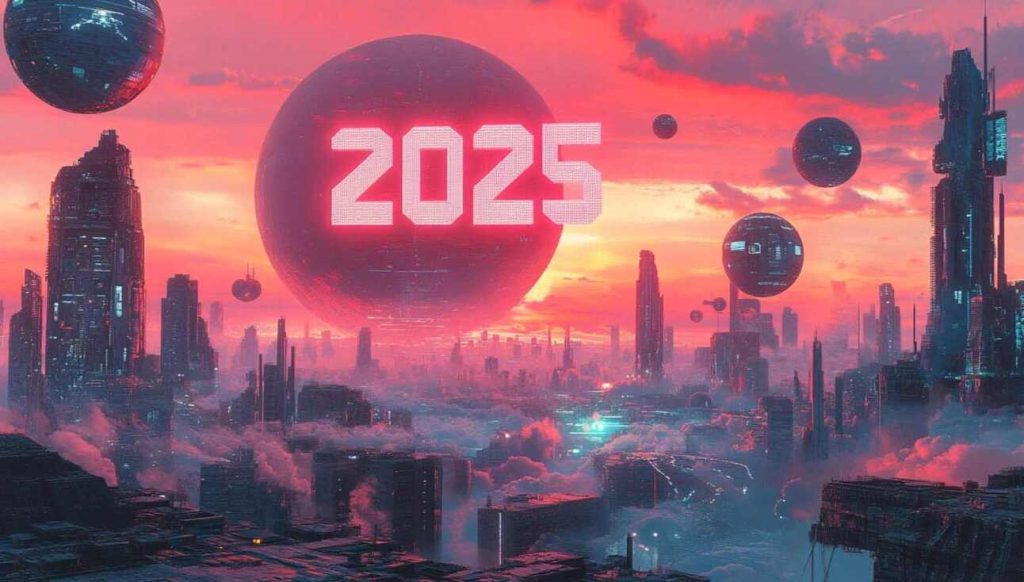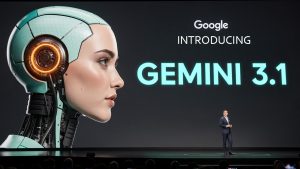What Awaits Us in 2025

As we step into 2025, the future is unfolding with incredible breakthroughs in technology. Many of us are eager to know how these advancements will reshape our lives. The coming year promises to introduce a landscape where AI and robotics play a central role. The journey of innovation continues to inspire growth and transformation.
With each new year, our expectations evolve. From advanced AI agents managing tasks to humanoid robots in our homes, 2025 holds remarkable potential. New technologies are set to influence daily activities, bringing convenience and efficiency. Let’s explore the advancements driving this revolution and the impact they could have on society as a whole.
In the upcoming year, AI agents will become omnipresent. These intelligent software units are designed to perform tasks like ordering food, managing customer queries, and automating work. Tech giants like Microsoft, OpenAI, and Alphabet are pioneering models to support these AI-powered tasks. With agents handling real-world duties, our lives are expected to become more streamlined and efficient.
A new economy will emerge as AI agents outperform humans in various jobs, like data analysis and report generation. Businesses leaning into tech will prefer AI for cost-effective solutions, particularly in customer service. Meanwhile, employees in less tech-savvy companies will leverage these agents to enhance productivity, potentially redefining the work landscape.
Smart businesses will maximize AI’s potential, relying on it for tasks that require analytical precision. This shift might lead to a restructured economy where human labor is augmented by AI efficiency.
In late 2024, startups observed that AI models weren’t advancing as swiftly as before, prompting a search for new training methods. Techniques like “chain-of-thought” reduce data usage and improve energy efficiency. OpenAI’s reasoning-focused o3 is at the forefront. This approach paves the way for future models while companies like Alphabet and Alibaba follow suit.
New methods will experiment with small models tailored for specific tasks and hybrid approaches that combine traditional machine learning with modern innovations. This evolution in AI training could lead to significant strides in model capability. A blend of thoughtful strategies may yield advancements that redefine AI’s role in our world.
The pursuit of better AI training highlights the need for innovative solutions. As these techniques evolve, the potential for smarter, more efficient AI systems rises.
AI’s presence will grow even more noticeable with generative features integrated into phones and laptops. Innovations like Meta’s Orion AR glasses and smart assistants will become prevalent. The medical field will benefit significantly, with AI aiding doctors in patient evaluation with remarkable accuracy. Scientists will harness AI for precise weather predictions and medical discoveries.
The utility of AI in unexpected areas emphasizes its versatility. From healthcare to environmental science, AI continues to be a crucial tool for advancement.
AI is set to invade spaces we never expected, offering new solutions and efficiencies that make life easier and more informed.
People will forge closer connections with language model-based platforms. Chatbots will mimic human behavior more precisely, offering personalized AI companions. This technology opens opportunities for therapeutic applications, with many exploring AI for mental health support.
The ability to create AI companions with emotional and physical characteristics resonates with users, enhancing their experience. This trend could revolutionize therapy and emotional support paradigms, opening avenues for deeper human-AI relationships.
Voice interfaces will finally make their mark, streamlining tasks previously reliant on text-based searches. In lieu of navigating through apps, users can now command devices verbally to execute tasks like shopping directly from their phones. This leap forward simplifies user interactions, marking a shift towards more intuitive technology.
The inception of voice-driven applications reflects a shift towards natural and frictionless communication. This burgeoning technology is set to become integral to everyday tasks, making human-device interaction simpler.
As voice technology evolves, our means of interacting with devices will transform, offering simplicity and ease of use.
The rise in AI literacy will transform the business landscape as demands for AI-skilled talent grow. As generative AI usage among executives rises, companies will craft customized systems using their data, leaning on internal and external expertise. Startups will benefit, drawing more investments, with the AI industry predicted to reach $1.81 trillion by 2030.
To remain competitive, businesses must prioritize understanding and engaging with AI. Those who lag may find themselves at a disadvantage in a rapidly evolving market. AI literacy will become a vital skill, fostering innovation and efficiency in companies across sectors.
The corporate world’s embrace of AI illustrates the need for comprehensive literacy. Businesses must adapt to technological progress to thrive in an increasingly digital economy.
Humanoid robots will soon debut in the consumer market, assisting with household chores, although they will be costly. Companies like Agility Robotics are leading the charge, introducing robots for intensive factory tasks. Simulations aid robots in mastering skills digitally before applying them in actual settings.
Real-world applications of humanoid robots showcase their potential to alleviate laborious tasks. As these robots integrate into society, they promise to revolutionize daily living and industry standards.
Humanoids open a new chapter in robotics, where their capabilities promise to ease human labor burdens.
The road to Artificial General Intelligence (AGI) continues as we seek to understand AI’s decision-making processes. Models like OpenAI’s o3 tackle complex problems like research-level mathematics and coding with expert precision. These models will merge linguistic, visual, and auditory abilities, broadening their understanding of the world.
As we approach AGI, gradual improvements will compile to produce more comprehensive models. The pursuit of AGI is marked by a consensus that breakthroughs will occur incrementally rather than suddenly. This progression encourages research and exploration in AI, unlocking new frontiers of knowledge.
The journey to AGI inspires a relentless quest for understanding and capability, promoting a future where AI seamlessly integrates with human life.
The future of 2025 shines brightly with AI and robotics leading the way. As these technologies intertwine with everyday life, their potential to reshape our world is undeniable. Together, we embark on this exciting journey.





